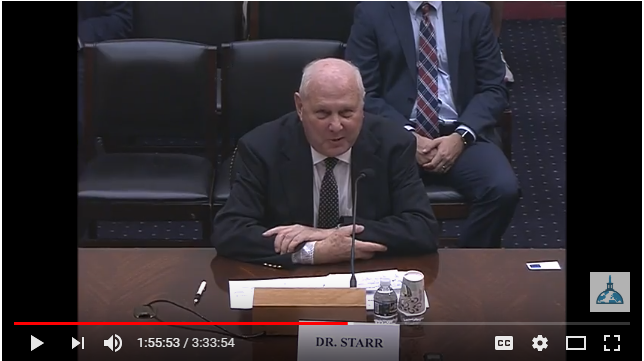S. Frederick Starr- Distinguished Speaker Lecture: Is Russia Becoming Central Asia's Near Abroad?
On October 2, S. Frederick Starr addressed the topic of Russia's relationship to Central Asia at the Woodrow Wilson Center entitled "Is Russia Becoming Central Asia's Near Abroad" convened by the Kennan Institute
The video of the event is available from the following link.
Scroll down to watch the full recording of the event.
CACI Forum - Reform in Uzbekistan: A Turning Point for Central Asia and Beyond
Reform in Uzbekistan: A Turning Point for Central Asia and Beyond
Scroll down for the video recording
Speakers:
S. Frederick Starr, Chairman, Central Asia-Caucasus Institute; co-editor, Uzbekistan’s New Face
H.E. Mr. Sherzod Shermatov, Minister of Public Education, Uzbekistan
Mr. Eldor Aripov, Director, Center for International Relations Studies, Tashkent
Moderator: Svante E. Cornell, Director, Central Asia-Caucasus Institute; co-editor, Uzbekistan’s New Face
Where: The National Press Club 529, 14th Street NW, 13th Floor, Washington, DC 20045
When: Thursday, Octobeer 4, 2018 from 3:00 - 4:45 pm
S. Frederick Starr Testifies at House Subcommittee Hearing on "Current Developments in Central Asia"
CACI Forum: Toward "Enlightened Islam"? Religion and the Secular State in Uzbekistan
Toward "Enlightened Islam"? Religion and the Secular State in Uzbekistan
Uzbekistan has remained staunchly secular and taken a firm stand against extremist movements since independence. In recent years, however, Uzbekistan’s policies have shifted from a defensive to a more proactive approach. The recent surge of reforms has affected the religious area as well. Uzbekistan has taken major steps toward the promotion of what President Shavkat Mirziyoyev terms “Enlightened Islam” at home and on the world stage.
This Forum was part of CACI’s ongoing research on the relationship between politics and religion in Central Asia and the Caucasus, and coincided with the release of the Silk Road Paper “Religion and the Secular State in Uzbekistan”, by Svante E. Cornell and Jacob Zenn.
Speakers: Svante E. Cornell, Director, Central Asia-Caucasus Institute at the American Foreign Policy Council
Moderator: Frederick Starr, Chairman, Central Asia-Caucasus Institute
Where: Middle East Institute: 1319 18th Street NW, 20036
When: Thursday, June 7, 2018 from 4:00 - 5:30 pm
Full Recording of the Forum Below:
CACI Forum: Opening Up in the Caucasus and Central Asia
Opening Up in the Caucasus and Central Asia: Policy Frameworks to Support Regional and Global Integration
The Central Asia-Caucasus Institute's (CACI) Forum continued its long-term partnership with the International Monetary Fund (IMF), to present it's semi-annual Economic Outlook for the Caucasus and Central Asia (CCA) and a special paper on how to leverage regional and global integration to capitalize on the more favorable global environment. The subject of discussion is of particular significance in times of profound political and economic changes in the region.
Speakers:
Juha Kähkönen, Deputy Director, Middle East and Central Asia Department, IMF
Peter Kunzel, Assistant to Director, Middle East and Central Asia Department, IMF
Moderator: Mamuka Tsereteli, Senior Research Fellow, Central Asia-Caucasus Institute
Where: Middle East Institute: 1319 18th Street NW, 20036
When: Tuesday, June 5, 2018 from 4:00 - 6:00 pm
Video Below




